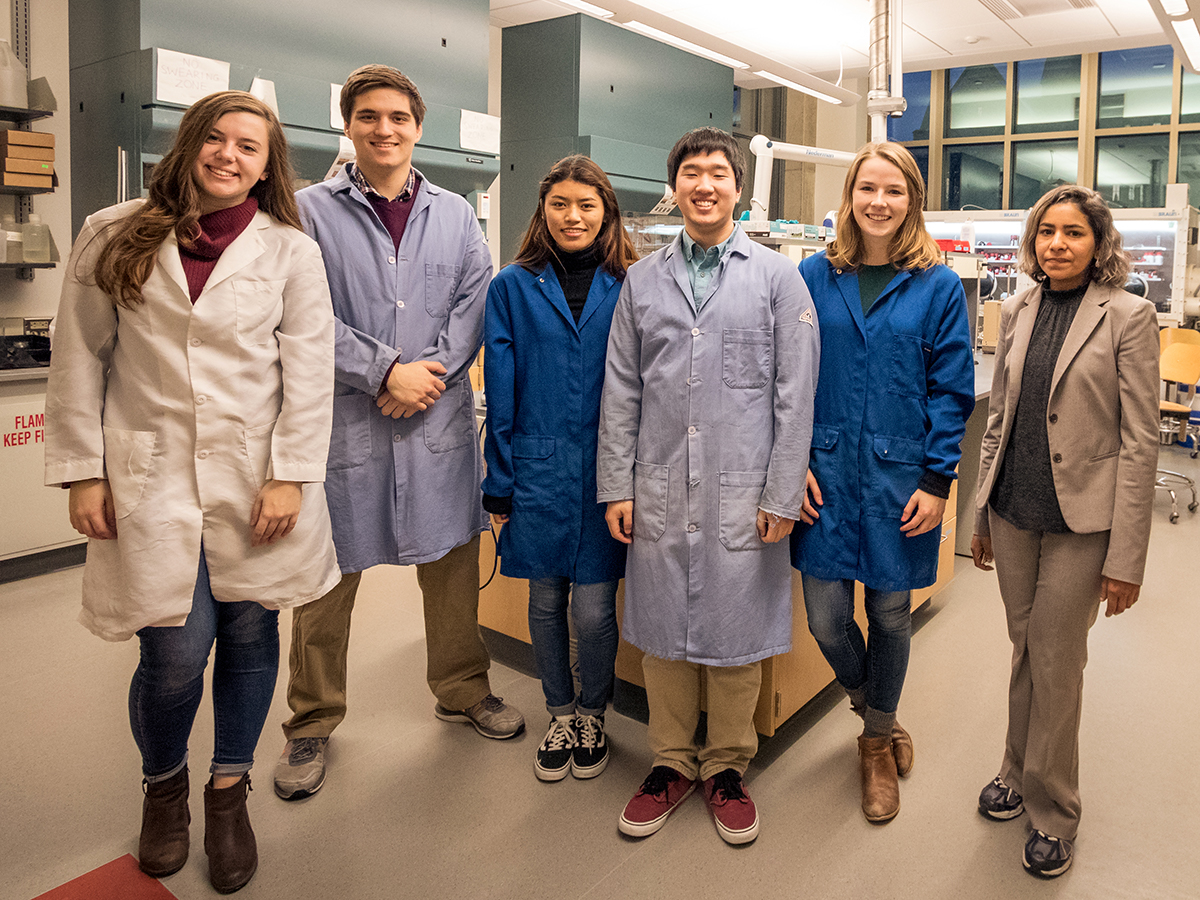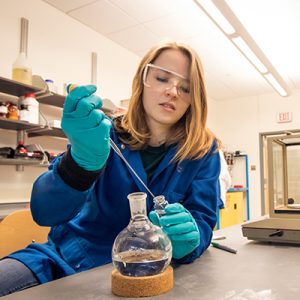Expanding Opportunities for Oles through Summer Research

Faculty-mentored research engages Oles in discovering their potential as researchers, investigators, and scholars. Through For the Hill and Beyond, Oles like Larry Satek ’67 are building funds to support this high-impact practice.
St. Olaf’s Collaborative Undergraduate Research and Inquiry (CURI) program engages more than 125 Oles each summer who pursue dedicated research and receive stipends, housing, supplies, and conference and travel support.
Associate Professor of Chemistry Dipannita Kalyani has engaged 50 Oles through CURI and other programs in discovering more cost-effective and sustainable catalysts to make molecular architectures used in pharmaceuticals and agrochemicals. These students gain valuable experience with far-ranging impact — half are co-authors on 10 publications; nearly all have presented at national conferences. Many go on to earn post-graduate degrees and competitive employment in chemistry and health.
“Oles are ahead of the curve because of these experiences,” says Kalyani. “Summer gives them the time needed to be thoroughly immersed in research and learn if they truly enjoy being open to risk and discovery.”
“These students are very capable — this is graduate-level work. The challenge truly is having enough positions.”
— Associate Professor of Chemistry Dipannita Kalyani

Kalyani sections larger projects into smaller ones, enabling Oles to work together while directing key segments. Experienced students lead and train new researchers, who guide the next. It’s a successful approach that earned Kalyani a prestigious National Science Foundation CAREER award — one of the grants she’s successively secured for mentored research.
Mckenna Hanson ’18 led an investigation of nickel-catalyzed cross-coupling reactions between azoles and aryl nitriles. Her team’s findings were published in the American Chemical Society journal Organic Letters. Following her work in Kalyani’s group she secured a competitive internship with pharmaceutical leader Merck, and will soon hear back from her recent applications to Ph.D. programs in chemistry.
“I have no doubt I got that internship because of my experience,” says Hanson. “As I led the project, I could speak easily about our data, process, obstacles, and results, compared to undergrads at other schools who typically work under a research assistant.”
“We are given lots of responsibilities,” says Ryan Walser-Kuntz ’18. “Professor Kalyani mentors us from step one. We gain confidence as we do more, and by the end, we design and pursue our own experiments.”
“These students are very capable — this is graduate-level work. The challenge truly is having enough positions,” says Kalyani. “We wouldn’t be able to do this without our funding partners.”
You must be logged in to post a comment.